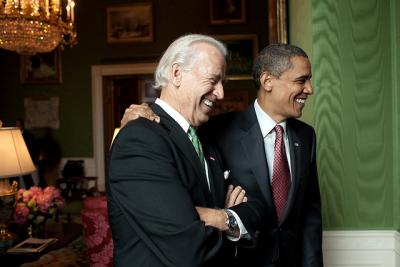What Obama’s re-election means for markets

ROME - Barack Obama led the Democrats to victory in the U.S. elections, being appointed for a second four-year term as President, defeating his Republican opponent Mitt Romney. Despite a close contest that saw many predict Obama would lose out - thanks to the high unemployment, sluggish economy and polls suggesting a lack of confidence in his leadership - he managed to edge out the Republican nominee.
Winning votes in Ohio and other industrial states in America were thought to have clinched the final vote for Obama, after the President announced he would bail out the Detroit car industry, to demonstrate economic fairness. Florida, the last State to be called, brought Obama’s votes to 332 versus Romney’s 206, giving the former president a comfortable margin of success.
Asian markets barely responded to the news overnight as concerns over whether Obama and Republican-dominated Congress will be able to avoid a fiscal cliff, which will see nearly £375bn of tax increases and spending cuts hit the U.S.economy in January. The Nikkei 225 index ended the day flat, down 0.03 percent to 8,973 points, the Shanghai index was flat and the Hang Seng made a gain of 0.28 percent to 22,006. President Obama's second successive election win is a positive for both bond and equity investors, industry commentators have said.
Cormac Weldon, manager of the £2bn Threadneedle American fund, said: "President Obama has emerged victorious from one of the most polarised presidential campaigns of recent years. But despite the electoral rhetoric, Obama knows his scope for manoeuvre in the face of the 'fiscal cliff' and the budget deficit is limited. He has little choice but to address these challenges (as would a President Romney) by raising taxes and cutting spending. While markets may be volatile post-election, we believe over the longer term, U.S.equities will gain support from the fundamental strengths of the economy. America is benefiting from a revival in the housing market and an industrial renaissance based on relatively cheap energy supplies.
"Mitt Romney had pledged to remove Ben Bernanke as chairman of the Federal Reserve and was opposed to quantitative easing, which has proven supportive of both equities and the housing market."
Tim Drayson, an economist for Legal & General Investments, said the election result matched his expectation, even if it was a bit more conclusive than he had anticipated. "Attention now turns to the fiscal cliff, where a decision is really needed before Christmas. What we need is co-operation, but the political wrangling could get ugly. We still expect fiscal tightening of around two percent, which will materially affect the economy," he said.
Co-manager of the Henderson Horizon American Equity fund, Nick Cowley, said Americans have voted for the status quo. "Obama's victory does provide stability, particularly with respect to the Federal Reserve, and thus the risk of Romney meddling with Ben Bernanke's loose monetary policy can now be eliminated.”
"The recent quarterly earnings reports from U.S. companies have highlighted that the fiscal cliff is freezing the decision-making process and thus holding back capital spending and new job creation. This runs the risk of derailing the positive progress that the U.S. economy is making, with notable signs of recovery in both the housing and auto sectors. Avoiding the fiscal cliff would allow this progress to continue and result in a compelling outlook for U.S. and global markets."
Richard Lewis, head of global equities at Fidelity Worldwide Investment, said we will see some very intense negotiations pre-Christmas around the budget deficit and the negotiating stance of the two parties will start off poles apart. "After a lot of wailing and gnashing of teeth, we are hopeful of a budget agreement along the lines of the Bowles-Simpson proposal which is based on a ratio of 3-1 spending cuts versus tax increases. Q4 activity levels will be low as a result and this will be exacerbated by the impact of Hurricane Sandy. On the basis that there will be a resolution before the first of January, we can expect a decent bounce-back in both economic activity and confidence early in the new year," he added.


